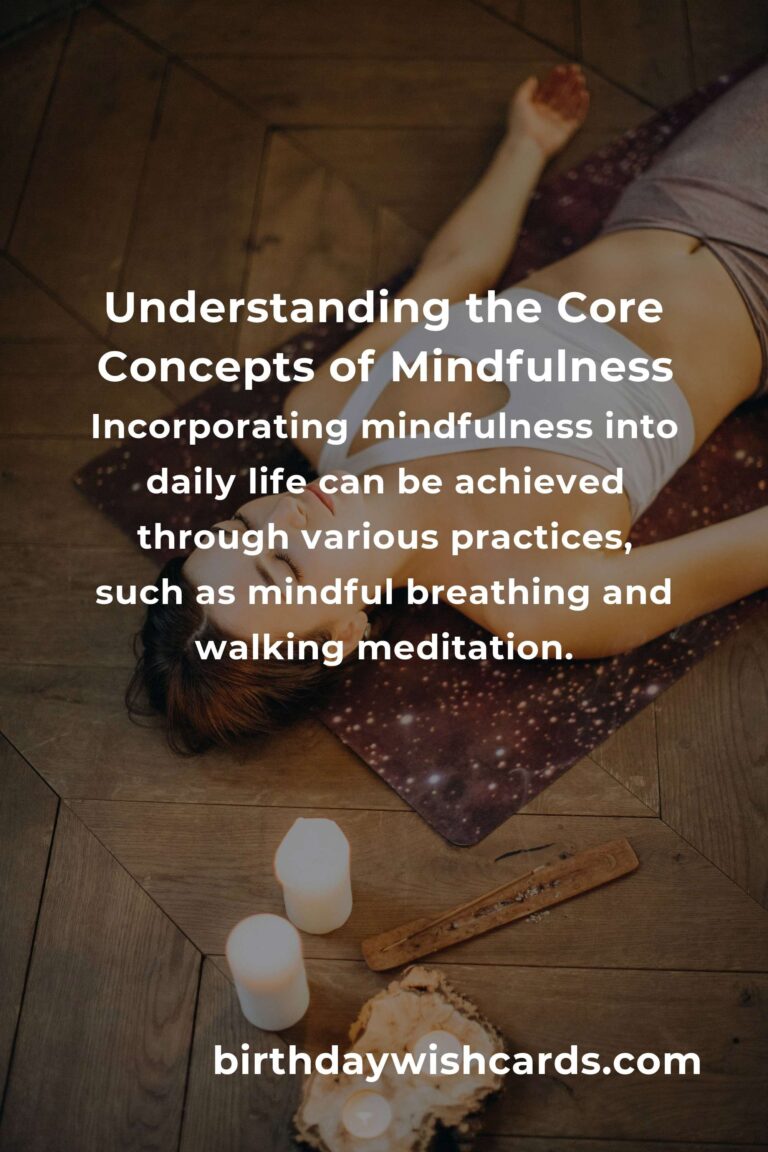
In recent years, mindfulness has emerged as a prominent practice for enhancing mental well-being and improving overall quality of life. However, despite its popularity, many people remain confused about what mindfulness truly entails and how it can be effectively integrated into daily life. This article aims to demystify mindfulness by exploring its core concepts, benefits, and practical applications.
What is Mindfulness?
Mindfulness is the practice of being fully present and engaged in the current moment, without judgment or distraction. It involves paying attention to thoughts, feelings, and sensations with an attitude of openness and curiosity. The roots of mindfulness can be traced back to ancient meditation practices, particularly those found in Buddhist traditions.
The Core Concepts of Mindfulness
Understanding the core concepts of mindfulness is essential for effectively incorporating it into daily life. These concepts include:
1. Present Moment Awareness
Being aware of the present moment means focusing on the here and now, rather than dwelling on the past or worrying about the future. This awareness allows individuals to fully experience each moment and respond to situations with clarity and intention.
2. Acceptance
Acceptance in mindfulness refers to acknowledging thoughts and feelings without trying to change or judge them. This means allowing experiences to be as they are, which can lead to reduced stress and emotional resilience.
3. Non-Judgment
Practicing non-judgment involves observing your thoughts and experiences without labeling them as good or bad. This encourages a neutral perspective that fosters understanding and compassion for oneself and others.
Benefits of Mindfulness
Research has shown that mindfulness offers numerous benefits for mental and physical health. Some of the key advantages include:
1. Stress Reduction
Mindfulness practices have been found to significantly reduce stress levels by promoting relaxation and decreasing the production of stress hormones.
2. Improved Focus and Concentration
Regular mindfulness practice enhances attention span and concentration, making it easier to focus on tasks and improve productivity.
3. Emotional Regulation
By increasing self-awareness, mindfulness helps individuals better understand and manage their emotions, leading to improved emotional well-being.
4. Enhanced Relationships
Mindfulness fosters empathy and compassion, which can improve communication and strengthen relationships with others.
Practical Applications of Mindfulness
Incorporating mindfulness into daily life can be achieved through various practices, such as:
1. Mindful Breathing
Focusing on your breath is a simple way to practice mindfulness. Take a few minutes each day to pay attention to your breathing, noticing the sensations of inhaling and exhaling.
2. Body Scan Meditation
This practice involves lying down and mentally scanning your body from head to toe, bringing awareness to any areas of tension or discomfort.
3. Mindful Eating
Engage in mindful eating by paying full attention to the taste, texture, and aroma of your food, and eating slowly without distractions.
4. Walking Meditation
Walking meditation involves focusing on the experience of walking, noticing the sensation of each step and the environment around you.
Conclusion
Mindfulness is a powerful tool for enhancing mental well-being and living a more fulfilling life. By understanding and practicing its core concepts, individuals can cultivate a greater sense of awareness, acceptance, and compassion. Whether through meditation, mindful breathing, or simply being present in daily activities, mindfulness offers a pathway to improved health and happiness.
Mindfulness is the practice of being fully present and engaged in the current moment, without judgment or distraction. Understanding the core concepts of mindfulness is essential for effectively incorporating it into daily life. Research has shown that mindfulness offers numerous benefits for mental and physical health. Incorporating mindfulness into daily life can be achieved through various practices, such as mindful breathing and walking meditation. Mindfulness is a powerful tool for enhancing mental well-being and living a more fulfilling life.
#Mindfulness #MentalHealth #StressReduction #Wellbeing #Meditation













